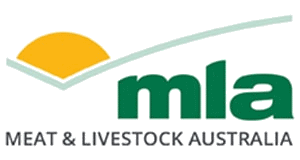Weekly Cattle and Sheep Market Wrap
Key Points
- Restocker cattle demand reflects the impact of the rainfall events of the last month.
- The National Mutton Indicator continues to recorrect.
- National cattle slaughter lifted above 150,000 head for the first time since June 2019.
Australia is heading into a series of public holidays that are expected to disrupt regular operations at saleyards and meat processing plants across the country. Market indicators and processing volumes will be impacted over the upcoming weeks. MLA will continue monitoring the prices and markets and return to regular market commentary once all saleyards are back online.
Upcoming National Public Holidays
- Easter: Friday 18 April – Monday 21 April
- ANZAC Day: Friday 25 April
- Labour Day (Queensland) and May Day (NT): Monday 5 May
A list of affected sales can be found in the article here.
Cattle Market
The mixed results in the cattle market this week were due to the volatility of supply in saleyards. This was caused by interrupted sales, with reduced yardings the week prior.
As the effects of the Queensland and NSW rain are realised in feed, confidence in the market has been reflected in the lifting of the Restocker Yearling Heifer Indicator and Restocker Yearling Steer Indicator. Despite a lift in indicator yardings, both indicators lifted 4¢ last week to 328¢/kg liveweight (lwt) and 401¢/kg lwt, respectively.
Finished animals did not fare well this week, with the Heavy Steer Indicator easing 16¢ to 356¢/kg lwt. This has further separated the gap between the steer indicators as the market reflects the weight of gaining confidence. The Processor Cow Indicator similarly fell, easing 13¢ to 284¢/kg lwt, a seeming correction of the spikes seen last week.
Sheep Market
The sheep market was similarly mixed this week. Similar to cattle, yardings were impacted by interrupted sales.
Finished stock remained relatively stable, with the Heavy Lamb Indicator and Trade Lamb moving sideways to 815¢ and 801¢/kg cwt.
Restocker lambs eased to 669¢/kg cwt, driven mostly by confidence in NSW markets pulling prices up last week, and a lack of competitive pulling them back down. The National Mutton Indicator continued its decline, down 78¢ to 431¢/kg cwt, despite a significant reduction in the supply of mutton through yards. Moving through autumn, it is likely we will see a continued reduction in supply.
Slaughter
Week Ending 11 April 2025
Processing volumes for the week ending 11 April lifted from last week as processors recovered from the impact of the floods in Queensland and prepared for several weeks of interrupted processing. Processing volumes tend to lift in the week before Easter, and this year’s increases are in line with this historical trend.
The next two slaughter reports will be impacted by the upcoming short weeks.
Cattle Slaughter
National slaughter lifted 6% to 152,180 head, thanks to significant lifts in NSW and Victoria. Both states had their largest kill weeks in five years, processing 37,994 and 25,411 head, respectively.
Consistent lifts across all states last week (up 0–8%) also contributed:
- NSW up 6% to 37,994
- Queensland up 6% to 77,335
- SA up 1% to 3,815
- Tasmania up 1% to 5,016
- Victoria up 8% to 25,411
- WA steady at 2,609.
Sheep Slaughter
Lamb processing reached records, lifting 4% for a record throughput of 527,045 head, the fourth consecutive week above the half-million mark. This reflects the continued supply of the 2024 lamb cohort, many of which were retained longer due to poorer conditions and weight gain decisions.
NSW throughput lifted 5% to 131,364, its largest week since September 2024. Victoria’s throughput also lifted 3% last week to 261,758, the second-largest state throughput, just behind last month’s record. State-by-state breakdown was as follows:
- NSW up 5% to 131,364
- Queensland up 4% to 1,460
- SA up 8% to 61,959
- Tasmania up 7% to 11,563
- Victoria up 3% to 261,758
- WA up 1% to 58,941.
Lifts were also seen in sheep slaughter, which increased 4% to 197,580, though throughput remained below the 2025 average. Increases across both categories took the combined slaughter to 724,627 head, the third largest throughput of the year.
Attribute to: Erin Lukey, MLA Senior Market Information Analyst.


